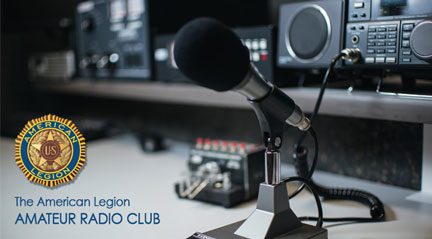An amateur radio operator is an individual who typically uses equipment at an amateur radio station to engage in two-way personal communications with other similar individuals, on radio frequencies assigned to the amateur radio service by the Federal Communications Commission (FCC) in the United States and the International Telecommunication Union worldwide.
Amateur radio operators build and operate several types of amateur radio stations, including fixed ground stations, mobile stations, space stations and temporary field stations. A slang term often used for an amateur station’s location is the “shack,” named after the small enclosures added to the upper works of naval ships to hold early radio equipment and batteries.
American amateur radio operators are granted an amateur radio license by the FCC upon passing an examination on radio theory and operation. As a component of their license, amateur radio operators are assigned a call sign (such as KC9ANG) that they use to identify themselves during communications. There are about 3 million amateur radio operators worldwide, including more than 700,000 licensed operators in the United States alone.
Amateur radio operators are also known as radio amateurs or hams. The term “ham” as a pejorative nickname for amateur radio operators was first heard in 1909 by operators in commercial and professional radio communities. The word was subsequently embraced by the operators, and stuck. However, the term did not gain widespread usage in the United States until around 1920, after which it slowly spread to other English-speaking countries.

Below is a list of American Legion Ham Radio Clubs around the country. To add your club to the list, contact us here: k9tal@legion.org
Below are links to documents and booklets that may be of use to those wishing to set up a TALARC station at their local post. The documents are only sample templates and can be modified as necessary – be sure to check with post leadership to verify that nothing decided on violates the post’s own bylaws and rules.
- Amateur Radio and The American Legion Brochure
- Draft version of The American Legion Post Amateur Radio Club Articles of Organization
- The American Legion Post Amateur Radio Club Bylaws Example
- Post Base Station / Communication Facility Equipment List
- Resolution No. 11: Establishment of The American Legion Amateur Radio Club
- Disaster Preparedness and Response for American Legion Posts
Basic information about getting an FCC amateur radio license:
- The American Radio Relay League
- Become an Amateur Radio Operator (or Ham Operator) in the USA
- ABC’s of Getting a Ham Radio License
Here are some great websites for taking sample technician exams – the correct answers are provided at the end of each test. If you can pass with an 80 percent or more on almost every test, you will have no problem in passing the actual exam.
- Amateur Radio and Commercial Radio licensing Exam Practice
- Ham Exams
- Amateur Radio Practice Exams
- Technician Flashcards
Study guides and printed materials:
- Ham Radio License Manual Revised 2nd Edition
- Study guide for Exam Questions (PDF)
- Technician Class Flash Card Set
- Department of Homeland Security
- Federal Communications Commission
- Amateur Radio Relay League
- A March 2015 American Legion Magazine Feature on Ham Radio and TALARC
The American Legion Amateur Radio Club
This video highlights The American Legion Amateur Radio Club. It’s history, members, and activities.
Department ByLaws
AMATEUR RADIO: To assist in the development of amateur radio, and, to that end, to establish an amateur radio chain among volunteer radio enthusiasts.












